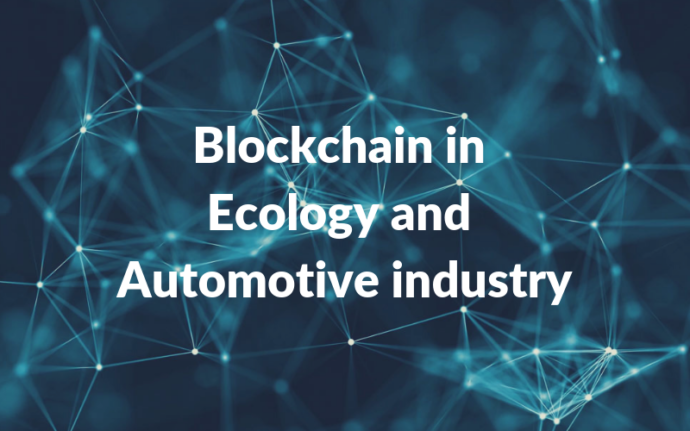Ways blockchain can make automotive industry more green
Blockchain technology is powerful as an enabler or decentralized systems, ecosystems and economies, with the type of a cryptocurrency known as a token used as programmable money with built-in incentives that could serve to build certain behaviors or to reach a desired outcome for those communities or societies.
Let’s quickly review the theory behind habit building. We have two main tools, positive and negative reinforcement. Many parenting and behavior experts question the power of negative reinforcement as a behavior building tool while there’s a basic consensus when it comes to the power of positive reinforcement. Governments mainly have negative reinforcement tools in their arsenal (parking tickets, prisons, etc.) and so do the banks (they rarely give you a prize for paying off your loans).
For making our roads and cities green, we have some good initiatives such as carbon offsets, but those again are based off negative reinforcement – fear of repercussions.
Blockchain promises us to create ecosystems that may be able to incentivize members through positive reinforcement, which is refreshing.
I would love to hypothesize on ways automotive industries could use blockchain in order to make the production, use, maintenance and other aspects of vehicles more green.
Production
The use of IoT coupled with blockchain-enabled supply chain controls could streamline production processes, reducing waste and optimizing manufacturing, developing more environmentally-friendly processes and materials. A transparent ledger shared across various parts of the supply chain could help companies save while becoming more ecological.
Using carbon offset systems is not new in production. However, using blockchain ecosystem for trading offsets would enable members of the ecosystem to enjoy additional benefits. Certain members could gain sponsors, clients and supporters by being ahead of the game with their green status while related alternative energy marketplaces could connect to this ecosystem to offer products and services.
Distribution
Sometimes a vehicle has an environmental footprint before its first owner even turned the ignition key! The way vehicles reach their first dealership or showroom can be much more green. Blockchain can help by ‘uberizing’ and connecting suppliers to create a greener path to market as well as transparently signal to the buyer which companies care about their environmental footprint. In addition, blockchain is known for making marketplaces more efficient. More information will help better predict market trend and demand as well as better manage the inventory, reducing the amount of travel for many new vehicles.
Maintenance
IoT and blockchain are a powerful combination. Add in smart contracts and those vehicles will be able to automatically order new parts when the old ones need replacement, with a preference for greener parts. Blockchain can establish the authenticity for these parts – it’s known that counterfeit parts are a big problem in the industry and those obviously don’t adhere to most environmental standards). Governments can use blockchain to create incentives for vehicle owners (and vehicles, empowered with AI and IoT) and to get greener parts by offering free checks, discounts on vehicle taxes, parking fees and so on, after all, when you have a ledger and can attribute purchases to a car owner, we can bestow positive reinforcement in forms of those benefits the government and the municipality now give.
Driving behavior
This has been a major problem on many roads due to accidents as well as environmental footprint. With tickets as the only available means to control speeding and driver behavior, governments have to fight apps and other means of driver and crowd intelligence when it comes to traps and speeding and red light cameras. With driving and texting getting out of control, most means of curbing this habit has proven to be ineffective.
Blockchain can offer clear incentives to drivers rewarding good behavior on the road. An anonymized system would have drivers only rewarded and not penalized for certain behaviors on the road. Not touching their phone for the duration of the drive could be rewarded through smart contract with something like a free cup of coffee, a discount on petrol or free parking for the day. Driving in an eco-friendly manner could be incentivized similarly.
—————-
As blockchain is becoming easier to use by enterprises, companies and governments, using blockchain technologies and the resulting ecosystems for the good of our communities and the planet would by itself be rewarding. However, what’s truly exciting is that besides the positive externality of all of us being able to breathe a cleaner air, it seems that there’s a way to bring additional profits for the industry. Blockchain will enable companies get greener at lower costs and eventually even provide additional benefits: it is likely to create additional opportunities, markets and business models increasing financial gain of the industry overall, and of course, bringing losses for those not on board with innovation or eco-friendly ways.

